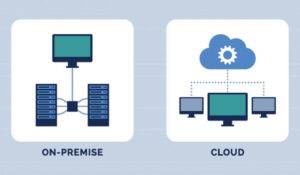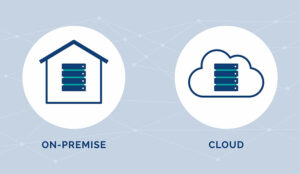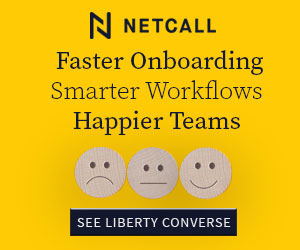IP Integration looks at another popular misconception: the idea that cloud contact centre platforms can’t match on-premise systems when it comes to features and customization.
Here’s why that argument doesn’t hold water.
Fact #1 – Cloud Services Come Fully Loaded
Contrary to popular opinion, cloud-based contact centre platforms do come fully loaded with features. More than that, some offer the very widest suites of functionality available on the market today, and are more feature-rich than their on-prem counterparts.
If you need a further vote of confidence, you might be interested to learn that we at IPI have even decided to deploy a cloud-based solution in our own contact centres. This gave us access to more features in one solution than we could have got from several point products.
A good cloud-based solution should cover lots of things, from queue management, omnichannel, CRM and real-time analytics to outbound campaigns, workforce management and quality assurance. It should also come with customizable user interfaces and dashboard reports.
The idea that cloud platforms lack features just isn’t borne out in practice.
Fact #2 – They Can Be Tailored to Your Precise Needs
A great product isn’t just a collection of features. It’s how it all these features work together to deliver against your business objectives.
This is particularly true in a contact centre environment, so it’s vital to partner with consultants and technicians who have the necessary experience to tailor readily available, off-the-shelf cloud solutions to your specific needs, and who have the expertise to mesh together different solutions and features so they work seamlessly and cohesively. This includes the integration of CRM systems, workforce optimization tools, IVR self-service, wallboards, text analytics and robotic process automation.
More importantly still, these partners should be able to deliver strategic advice on matters other than just technology. For example, they should have good, practical ideas about how to refine processes or boost engagement. This value-added approach will ensure your investments in the contact centre also support the company’s overall business objectives.
Furthermore, your partners should also be able to demonstrate that they have a proven programme to help customers migrate from on-prem to the cloud, while always protecting their previous IT investments.
Putting Even More Features Within Reach
Look also for partners which have teams of in-house developers who specialize in replicating existing system integrations and configurations, eliminating disruption and risk. This helps you extract even more value from your cloud investment, for example by eliminating the need for agents to keep switching between apps or inputting the same data multiple times.
In an ideal world, everyone should share a single real-time view of customer journeys and CX performance across all channels.
Customer integrations can be complex and challenging because they need to bring together a whole host of different vendor solutions.
The good news is public cloud-based contact centre solutions typically allow you to interconnect more systems than you ever could with a traditional on-premise solution.
Indeed, contact centre solutions providers are exceptionally eager to provide as many ready-made applications and integration templates as they can. Typically, these options run into the hundreds.
In summary, don’t be put off moving to a cloud contact centre because you’re worried about losing features and customization. Nothing could be further from the truth.
For more information, visit www.ipintegration.com
Author: Robyn Coppell
Published On: 31st Jan 2020 - Last modified: 5th Feb 2020
Read more about - Guest Blogs, IP Integration



































